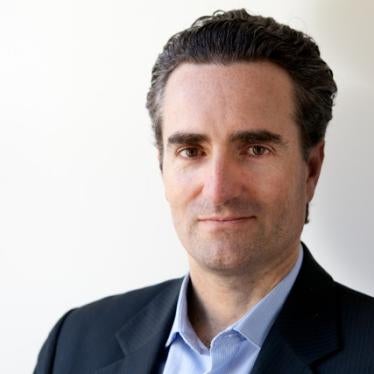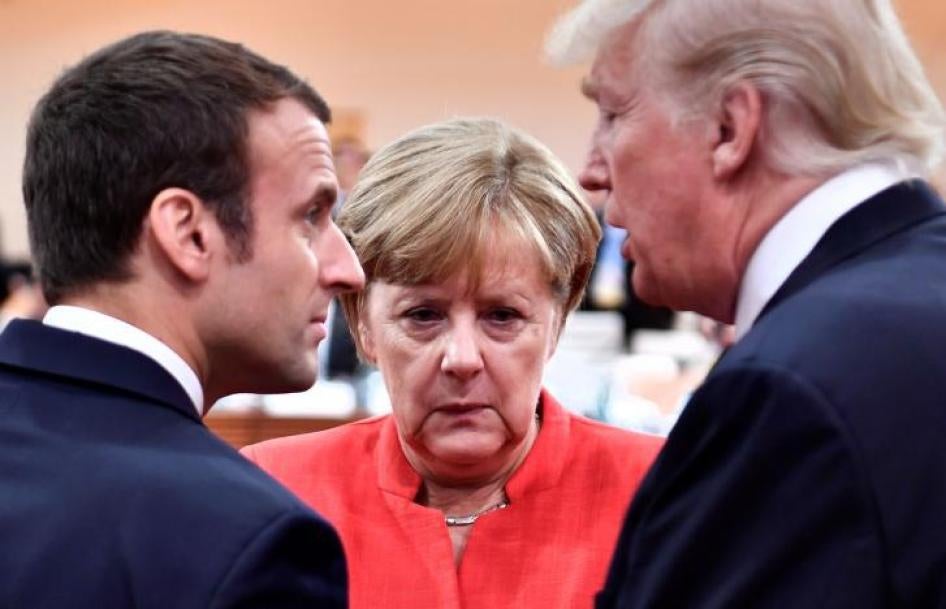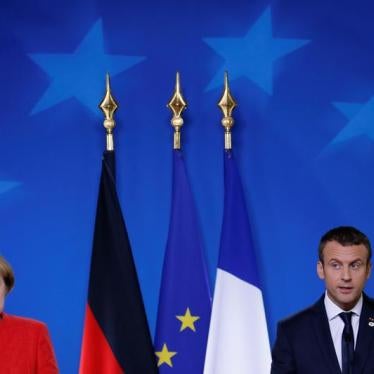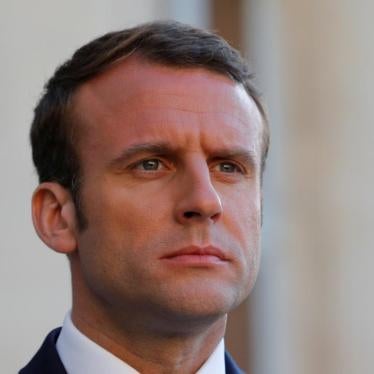President Emmanuel Macron is hosting President Donald Trump for Bastille Day to commemorate the one hundredth anniversary of the entry of the United States into World War I. The invitation is highly symbolic and ironic: the NATO- and EU-bashing Trump presiding over a military parade that celebrates the end of the splendid isolation that kept the United States out of the allied war effort through April 6, 1917, when Congress declared war on Germany.
The nativist and isolationist agenda Trump preaches for the United States is squarely at odds with the legacy that will be commemorated on the Champs-Elysées. Trump’s views dismiss historic allies and tarnish values and principles that are the foundation of the multilateral order first ushered in by the victorious allies at the end of World War I. His agenda is also at odds with the values and principles that will be at the heart of the joint cabinet meeting Macron will be hosting alongside Chancellor Angela Merkel the eve of Bastille Day to mark the heightened entente between France and Germany on key issues from climate change to human rights to the future of the EU and the United Nations. On all of these fronts, as Merkel hinted in a veiled reference to Trump, “the times in which we can fully count on others are somewhat over.”
Whereas Macron will be on comfortable ground when meeting Merkel, the encounter with Trump is more risk-laden. It also comes on the heels of a lack-luster-yet-protest-mired G20 summit in Hamburg, Germany, last week where, according to Merkel, “differences were not papered over, they were clearly stated.” Macron already navigated a similarly risky encounter with President Vladimir Putin quite skilfully, so here’s to him holding his ground and faithfully promoting the principles and values he has often defended in discourse if not yet in practice.
In a lofty and lengthy speech before an extraordinary joint session of congress in Versailles on July 3, Macron laid down the guiding principles for his administration. The first real foreign test since his attachment to these principles, absent other allies, will be his upcoming meeting with Trump. Regarding climate change and our common universal heritage, he is likely to insist on the “need to defend the planet from climate change” as he already did when Trump unsigned the Paris Climate Agreement. But, will Macron speak more generally of “the vice that poisons our public debate: the denial of reality” he warned against in Versailles, and take issue with Trump for propagating and feeding off the vice?
Regarding refugees, will Macron speak of them again “not as a burden but a chance” and advocate “fair, humane treatment and protection” to “welcome political refugees at risk,” including in the United States? Regarding multilateral organizations such as the United Nations, will he insist that “the multilateral order is without doubt more necessary today than ever before” and call on the United States to cease any ongoing efforts to weaken it? Regarding human rights, will he remain true to his call for the “concrete, tangible and visible application of the principles that guide us: liberty, equality, fraternity”?
Will he make clear to Trump that implementation of his administration’s draconian and expansionist “Global Gag Rule” against abortion will have a hugely negative impact on AIDS relief, efforts to stem the spread of infectious disease, and global health?
In short, will Trump be appeased or faced with the “resistance and coherence” that Macron promised would be his “only north”? Will Macron have the courage and spine to break through the nativist and isolationist walls that Trump seeks to create, under the flimsy guise of greater safety and security for the United States? It is not the ceremonial saber-rattling of the military parade but the face-to-face discussion between Macron and Trump that will determine whose Bastille Day it turns out to be.










